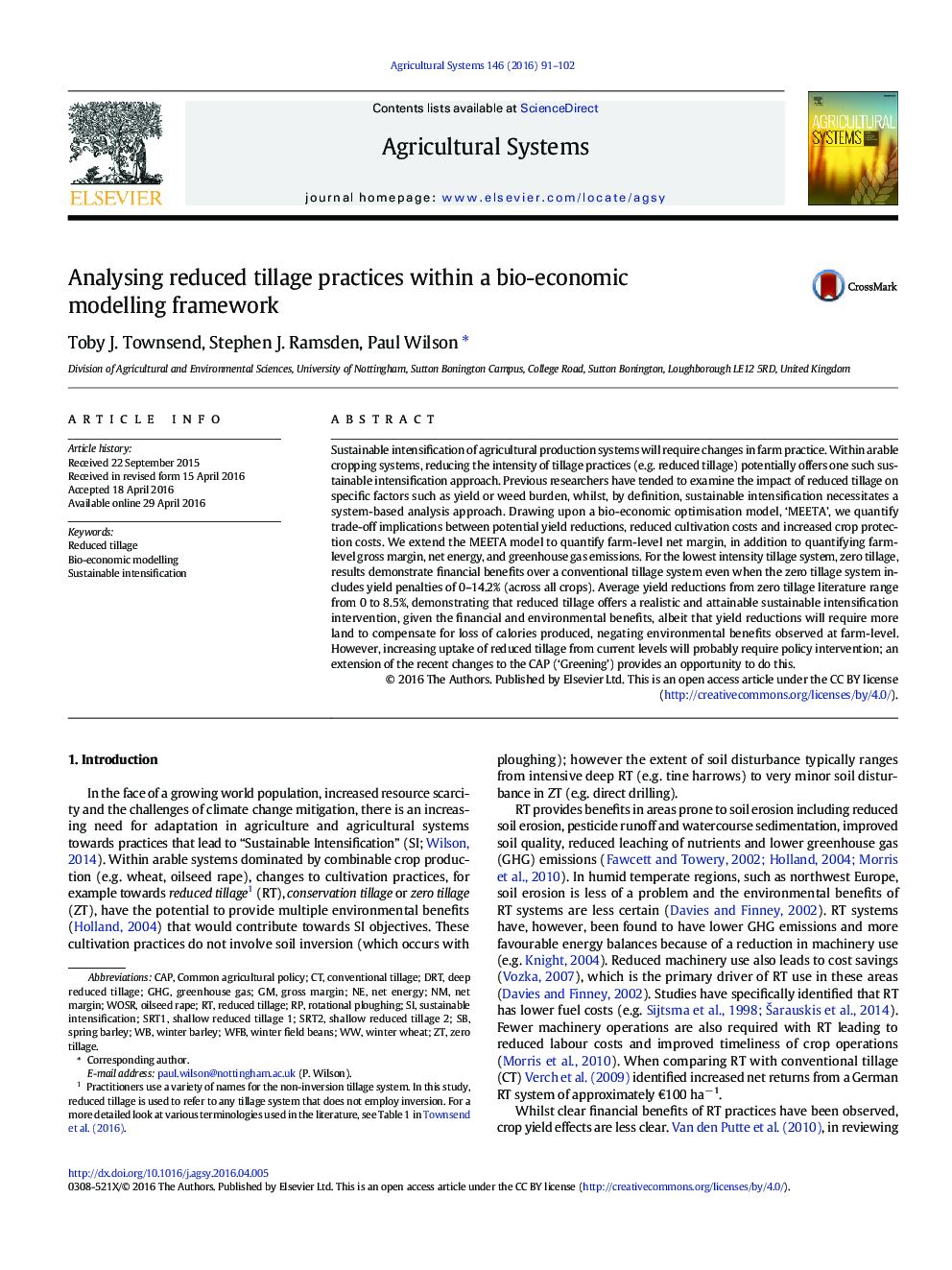| کد مقاله | کد نشریه | سال انتشار | مقاله انگلیسی | نسخه تمام متن |
|---|---|---|---|---|
| 6368381 | 1623224 | 2016 | 12 صفحه PDF | دانلود رایگان |
- Reducing tillage intensity provides economic, energy and GHG emissions benefits.
- Using reduced tillage has implications for crop selection.
- Risks of yield penalties may explain why rotational ploughing is common.
Sustainable intensification of agricultural production systems will require changes in farm practice. Within arable cropping systems, reducing the intensity of tillage practices (e.g. reduced tillage) potentially offers one such sustainable intensification approach. Previous researchers have tended to examine the impact of reduced tillage on specific factors such as yield or weed burden, whilst, by definition, sustainable intensification necessitates a system-based analysis approach. Drawing upon a bio-economic optimisation model, 'MEETA', we quantify trade-off implications between potential yield reductions, reduced cultivation costs and increased crop protection costs. We extend the MEETA model to quantify farm-level net margin, in addition to quantifying farm-level gross margin, net energy, and greenhouse gas emissions. For the lowest intensity tillage system, zero tillage, results demonstrate financial benefits over a conventional tillage system even when the zero tillage system includes yield penalties of 0-14.2% (across all crops). Average yield reductions from zero tillage literature range from 0 to 8.5%, demonstrating that reduced tillage offers a realistic and attainable sustainable intensification intervention, given the financial and environmental benefits, albeit that yield reductions will require more land to compensate for loss of calories produced, negating environmental benefits observed at farm-level. However, increasing uptake of reduced tillage from current levels will probably require policy intervention; an extension of the recent changes to the CAP ('Greening') provides an opportunity to do this.
Journal: Agricultural Systems - Volume 146, July 2016, Pages 91-102
